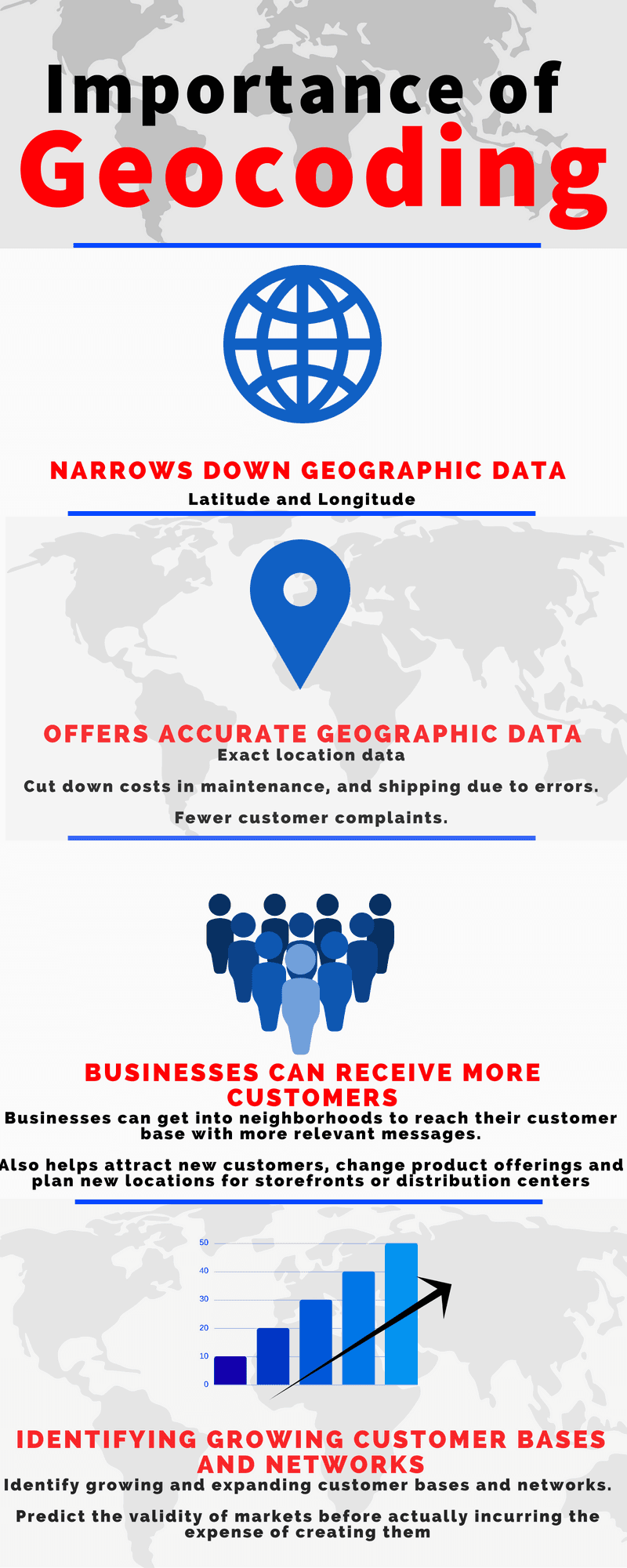Understanding Geocode Importance
3 MINUTE READ
In a large number of industries, a big part of sealing the deal (and getting paid as a result, of course) is delivering the goods to a certain location.Imagine striking a great deal with your customer about a massive shipment of easily-perishable oysters, so to speak, and then sending the lot to Greenville, New York instead of Greenville, South Carolina!
The stuff of nightmares for any business owner, indeed. Now, it doesn’t take a nuclear scientist to tell you that in order to make a successful delivery of goods or services, you need to have correct location data readily at your disposal.Having said that- there’s a new way of obtaining these crucial pieces of information, and it’s done through a process rather intuitively called- geocoding!
In this article, we’ll discuss the structure, means of procuring as well as the most notable benefits of geocodes– the data obtained through the noble ‘n’ novel process of geocoding.
What is a Geocode?
Simply put, a geocode represents the GPS coordinates of a certain physical location.Every given location on Earth can be represented by the value of its latitude and longitude, so as long as you can procure these two pieces of information, you can make a geocode to mark that particular spot!
How Does One Engage in the Act of Geocoding?
As high-tech and advanced as the handling of geocodes sounds, the process of procuring them can be painstakingly difficult- and in the physical sense, too! Namely, the first way (and possibly the most reliable one) of acquiring geocodes is to travel to the destination you want to ‘capture in code’, whip out your GPS device, press some buttons et voila!- you’ve got yourself a properly captured geocode at the exact location of its ‘natural habitat’.The second way includes less walking and more math. (Which for some people doesn’t necessarily represent that much of an improvement.)
The process involves mixing up of the two extracted values of a coordinate and then approximating its position by using a certain formula to do the equation.As the word itself suggests, the second approach revolves around approximation, while the first, spot-on approach leaves very little to no room for error.
Why Geocodes Matter?
One of the biggest problems when it comes to delivering certain goods to a location is that the address is simply not precise enough.Whether it’s through human error, or some other set of unforeseen circumstances, (Such as delivering goods to an enormous facility with multiple entrances.) not being able to find your way toward your destination straight away can cost time and money.
Geocodes have a pinpoint accuracy and can be easily updated when necessary, which makes them a perfect currency for finding any given location!In conclusion, working with faulty information when delivering goods can result in some unneeded embarrassment, rescheduling and possibly even losing clients! When it comes to pinpointing a place on a map, geocoding is currently the best way to determine any given location and mark it for later reference.If you’re a business owner, you’ve got to check this technology out!







